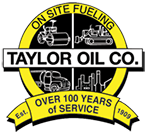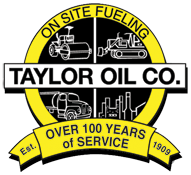In the ever-competitive world, companies are always on the lookout for ways to trim their operating costs. Lower expenses not only give you a competitive edge but also lead to healthier profit margins. One of the key strategies for achieving cost savings in manufacturing is proper equipment maintenance, and a pivotal aspect of this is timely lubrication. When you adhere to a well-planned lubrication schedule, you can significantly reduce costs by mitigating unnecessary friction, corrosion, and costly repairs. In this article, we’ll delve into the many benefits of timely lubrication and how it can extend the life of your machines.
Corrosion
Corrosion, the nemesis of machinery, occurs when your equipment is exposed to oxidation. Left unchecked, corrosion can reshape moving parts and cause detrimental friction. However, the right lubricants act as a protective shield for your machinery, safeguarding essential components from damage.
The extent of protection you achieve depends on the type of lubricant used. For instance, petroleum and synthetic oils are invaluable for applications involving rolling chains in high-capacity operations. Petroleum-based lubricants are known for their high melting points, making them capable of withstanding harsh temperatures. This property renders them particularly useful in warm, humid environments where corrosion is more likely to rear its ugly head.
If you’re responsible for manufacturing equipment, it’s worth considering the implementation of a meticulous lubrication schedule for critical components such as bearings, hydraulic systems, and compressors. Mineral-based lubricants are an excellent choice for hydraulic systems. Additionally, you can use rust inhibitors as additives to thwart corrosion, thereby extending the lifespan of your equipment.
Equipment Issues: Planning and Early Detection is a Must
Timely lubrication not only prevents damage but also contributes to reducing equipment downtime. By adhering to a lubrication schedule, you can comprehensively inspect all moving parts of your machines and introduce routine maintenance. Furthermore, you can tailor your lubrication plan to accommodate the unique needs of different types of equipment. For example, conveyor belts may necessitate more frequent lubrication than hydraulic pumps.
An effective strategy is to lubricate your machines just before peak operating hours. Achieving this goal requires a consistent supply of lubricants and a commitment to your maintenance schedule.
Find the Best Lubricants
Customizing the lubricants used for specific machines can enhance the efficiency of your manufacturing plant. While oils and greases are commonly used as lubricants, they possess distinct properties when applied to your equipment. Machine oil, a light mineral oil widely used in factories, stands out for its excellent anti-wear and oxidation properties, as well as its low evaporation rate.
Machine oil is well-suited for lubricating bearings and gears in equipment such as conveyor belts, hydraulic pumps, and industrial fans. Grease, with its higher melting point compared to oil, is an ideal choice for equipment operating in high-temperature conditions.
Consider Products with Low Volatility
Excessive friction in gearboxes and bearings can lead to increased power consumption and a surge in your utility bills. The good news is that lubricants are specifically designed to combat friction. If your machines generate heat during operation, it’s wise to consider products with low volatility.
Silicone-based lubricants, known for their durability, high melting points, and low volatility, are reliable for a myriad of industrial applications. These lubricants are particularly useful in settings where water and acidic solutions might come into contact with moving parts, such as food processing plants. Commercial dishwashers and sewage grinders are perfect examples of equipment that work seamlessly with silicone-based products. Timely lubrication can work wonders in reducing electric consumption and other overhead costs.
In conclusion, timely lubrication is a cost-effective strategy that not only reduces operational expenses but also prolongs the lifespan of your manufacturing equipment. By preventing corrosion, detecting issues early, selecting the right lubricants, and lowering utility costs, you can ensure your manufacturing processes remain efficient and profitable. So, consider implementing a well-thought-out lubrication schedule as a fundamental part of your equipment maintenance program and watch your manufacturing costs decrease while your profits rise.
If you need a great service for lubricant delivery contact Taylor Oil Company for 24/7 on site equipment fueling with locations from Boston to DC.


